Symphonic Stradivarius
London Symphony Orchestra
Miran Vaupotić conductor
Davide Alogna violin
Sophia Serghi composer
Joseph T. Spaniola composer
Mark Dal Porto composer
Deborah Kavasch composer
Liova Bueno composer
Barbara Jazwinski composer
Nan Avant composer
Michael J. Evans composer
Derek A. McKinney composer
Marcos Mares-McKinney composer
Paul Paccione composer
Richard E Brown composer
Navona Records is pleased to present SYMPHONIC STRADIVARIUS, featuring decorated violinist Davide Alogna and the esteemed London Symphony Orchestra. Several contemporary composers assemble in this release to showcase the diverse influences and creative capabilities of modern classical composition.
Recorded at the historic LSO St. Lukes, this repertoire offers musical insight into the environmental aspects of our world, all united by a world class ensemble, celebrated soloist, and an instrument that has been passed down through centuries of lauded performers: a “1690s ‘Stephens’ Stradivari” belonging to the very first group of red varnished Violins ever made.
Listen

Experience in Immersive Audio
This album is available in spatial audio on compatible devices.
Stream now on Apple Music, Tidal, and Amazon Music.
Track Listing & Credits
| # | Title | Composer | Performer | |
|---|---|---|---|---|
| 01 | Dragonflies | Sophia Serghi | Davide Alogna, violin; London Symphony Orchestra | Miran Vaupotić | 5:22 |
| 02 | A Solitary Tree | Joseph T. Spaniola | Davide Alogna, violin; London Symphony Orchestra | Miran Vaupotić | 5:25 |
| 03 | Tarantella | Mark Dal Porto | Davide Alogna, violin; London Symphony Orchestra | Miran Vaupotić | 6:06 |
| 04 | The Peace of Wild Things: A Reflection | Deborah Kavasch | Davide Alogna, violin; London Symphony Orchestra | Miran Vaupotić | 6:04 |
| 05 | Evening on the Hill | Liova Bueno | Davide Alogna, violin; London Symphony Orchestra | Miran Vaupotić | 5:33 |
| 06 | Beyond the Sunset | Barbara Jazwinski | Davide Alogna, violin; London Symphony Orchestra | Miran Vaupotić | 5:32 |
| 07 | Nani Lahaina - Rhapsody for Violin and Orchestra | Nan Avant | Davide Alogna, violin; London Symphony Orchestra | Miran Vaupotić | 4:46 |
| 08 | It's Your Choice | Michael J. Evans | Davide Alogna, violin; London Symphony Orchestra | Miran Vaupotić | 5:08 |
| 09 | The Seed | Derek A. McKinney, Marcos Mares-McKinney | Davide Alogna, violin; London Symphony Orchestra | Miran Vaupotić | 5:32 |
| 10 | Wave Forms | Paul Paccione | Davide Alogna, violin; London Symphony Orchestra | Miran Vaupotić | 5:39 |
| 11 | Fire Dance | Richard E Brown | Davide Alogna, violin; London Symphony Orchestra | Miran Vaupotić | 5:24 |
Recorded June 6-8, 2024 at LSO St. Lukes in London, England, United Kingdom
Session Producer Brad Michel
Session Co-Producer Melanie Montgomery
Session Engineer Jonathan Stokes, Classic Sound
Editing, Mixing & Mastering Brad Michel
Immersive Audio Engineer Brad Michel
Photography Benjamin Ealovega

Stradivari violin generously on loan from the Florian Leonhard Fine Violins.
Executive Producer Bob Lord
VP of A&R Brandon MacNeil
A&R Danielle Sullivan, Chris Robinson, Jeff LeRoy
VP of Production Jan Košulič
Audio Director Lucas Paquette
Production Manager Martina Watzková
Production Assistant Adam Lysák
VP, Design & Marketing Brett Picknell
Art Director Ryan Harrison
Design Edward A. Fleming
Publicity Chelsea Kornago
Digital Marketing Manager Brett Iannucci
Artist Information
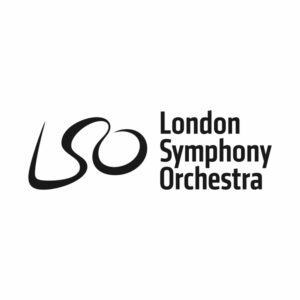
London Symphony Orchestra
Widely acclaimed by audiences and critics alike, The London Symphony Orchestra was named by Gramophone as one of the top five orchestras in the world. A world-leader in recording music for film, television, and events, it was the official orchestra of the London 2012 Olympic and Paralympic Games ceremonies, memorably performing Chariots of Fire on stage in the opening ceremony, conducted by Simon Rattle and with Rowan Atkinson.
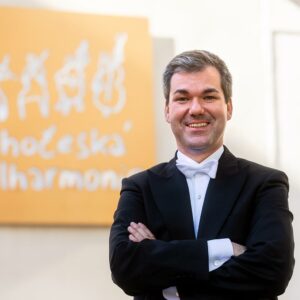
Miran Vaupotić
Acclaimed as “dynamic and knowledgeable” by the Buenos Aires Herald, Croatian conductor Miran Vaupotić has worked with eminent orchestras including the London Symphony Orchestra, the Royal Scottish National Orchestra, the Berliner Symphoniker, the Russian National Orchestra, the Slovak Radio Symphony Orchestra, the Prague Radio Symphony Orchestra, the Budapest Symphony Orchestra MÁV, Orchestre de Chambre de Genève, the Cairo Symphony Orchestra, Orquesta Sinfónica Nacional Argentina, and others, performing in major halls around the globe such as Carnegie Hall, Wiener Musikverein, Berliner Philharmonie, Rudolfinum, Smetana Hall, Victoria Hall, Forbidden City Concert Hall, Shanghai Oriental Art Center, Dubai Opera, Tchaikovsky Hall, International House of Music, CBC Glenn Gould Studio, and more.

Sophia Serghi
Sophia Serghi (b. 1972) was born in Nicosia, Cyprus and is now a resident of the United States. She has written works for stage, orchestra, and chamber ensembles, along with her vocal and multimedia works, and her compositions have been performed throughout Europe and the United States.

Joseph T. Spaniola
Joseph T. Spaniola is a composer on a passionate quest to engage the hearts and minds of audiences and performers through the communicative powers of music. Spaniola is active as a composer, arranger, educator, conductor, lecturer, producer, clinician, and adjudicator. He has composed works for band, orchestra, chamber ensembles, solo instruments, voice, choir, and electronic tape. His works have received honors from National Band Association, The American Prize, Global Music Awards, Florida State Music Teachers Association, Dallas Wind Symphony, and others.
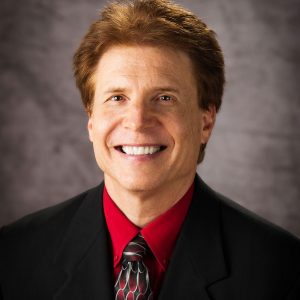
Mark Dal Porto
Mark Dal Porto has received numerous commissions with his works receiving hundreds of performances by many instrumental and vocal ensembles throughout the United States and abroad. In 2019, he released Peace, Nature & Renewal¸ a CD featuring some of his orchestral, choral, and chamber works. In the 2013 CODA (College Orchestra Directors Association) International Composition Contest, he was awarded first prize for his orchestral work Song of Eternity. He has also received certificates of excellence in band, choral, orchestral, and chamber music composition from The American Prize organization.
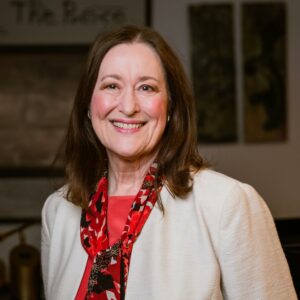
Deborah Kavasch
Deborah Kavasch, BMI composer, soprano, educator, and specialist in extended vocal techniques, has had works commissioned and performed in North America, Europe, the United Kingdom, and China. She has received grants and residencies in composition and performance, was a 1987 Fulbright Senior Scholar to Stockholm, and has appeared in major international music centers and festivals in concerts, solo recitals, workshops, lecture/demonstrations, and television and radio broadcasts since 1981.
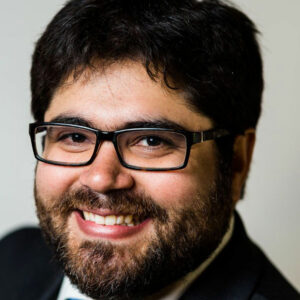
Liova Bueno
Liova Bueno's music is performed in concerts and music festivals internationally, from Europe, the United States, and across Canada to countries in Central and South America. He has received commissions from and has collaborated with various ensembles, including Cuarteto de Bellas Artes (Mexico), Vox Humana Chamber Choir (Victoria, B.C.), the Victoria Choral Society (Victoria, B.C.), the London Symphony Orchestra (U.K.), the Janáček Philharmonic Orchestra (Czech Republic), BRNO Contemporary Orchestra (Czech Republic), the Illinois Modern Ensemble (Illinois), the Orquesta Sinfónica Nacional Juvenil and members of the Orquesta Sinfonica Nacional (Dominican Republic), and members of the Victoria Symphony.
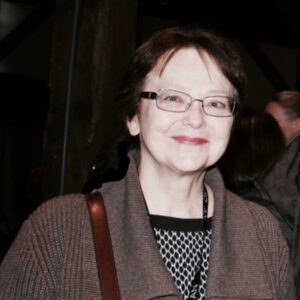
Barbara Jazwinski
Barbara Jazwinski’s music has been heard throughout North America, Europe, and the Far East. Her portfolio, influenced by her Polish heritage and by the culture of New Orleans, her home for many years, includes over 100 original compositions in various genres and for many different vocal and instrumental ensembles. She has been commissioned by many artists and ensembles around the world and her works have been presented to critical acclaim at well-known concert series and international festivals. Barbara Jazwinski’s compositions are available on several recording labels, and on websites and radio stations around the world including Navona Records, Vienna Modern Masters, Capstone, Lorelt, Ravello and Musiques Suisses labels.
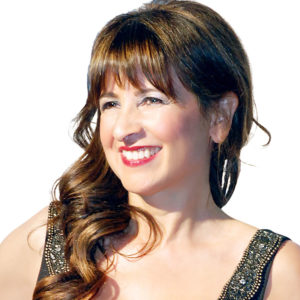
Nan Avant
Nan Avant’s music embraces thematic and rhythmic intentions often reflecting her Latin heritage, encompassing her passion for classical, jazz, world, and ethnic music. Avant’s music has been honored with numerous accolades and awards including her most recent recordings on the Navona Records label with the London Symphony Orchestra, the Royal Scottish National Orchestra and the Zagreb Festival Orchestra garnering her three Silver Medals in the Global Music Awards 2022–2023, The American Prize: Winner – Pops/Light Orchestral Composition 2023, and Winner in two categories of the Clouzine International Music Award 2023.
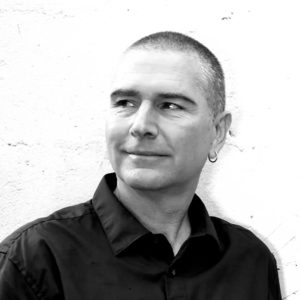
Michael J. Evans
Michael J. Evans is an American composer based in Washington DC. He has recorded with pianist Karolin Rojahn, Sirius String Quartet, Janaček Philharmonic, Moravian Philharmonic. St Petersburg State Symphony Orchestra, and Kiev Philharmonic. Living in DC has had a profound influence on his music. Many of his works explore, or are inspired by LGBTQ, environmental, and social justice issues. His recent projects are focused on multimedia: combining music, literature, and video.

Paul Paccione
Paul Paccione was born in New York City in 1952. He studied classical guitar and music theory at the Mannes College of Music (B.M. 1974). While at Mannes, he was influenced by composer Eric Richards to begin compositional study. Subsequently, he began private composition studies with composer Harley Gaber. He continued composition studies at the University of California, San Diego, with composer Kenneth Gaburo (M.A., 1977). He later studied composition with composer/conductor William Hibbard, at the University of Iowa (Ph.D., 1984).
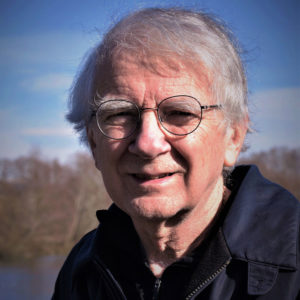
Richard E Brown
Richard E Brown, a native of New York State and has been active as a composer-arranger and music educator for many years. His training includes M.M. and D.M. degrees in composition from Florida State University, as well as a B.A. in music education from Central College, which named him a Distinguished Alumnus in 1983. His principal composition studies were with Carlisle Floyd, John Boda, and Charles Carter. He is a member of ASCAP and is represented in the catalogs of several trade publishers, as well as his personal imprint Dacker Music.

Derek A. McKinney
Derek A. McKinney is a native of Oakland CA. He started playing piano at age 5 and not long after picked up the drums and trombone. Though these three instruments were his primary focus as a youth, by the time he graduated from Skyline High School he had added most of the other brass instruments, sax, clarinet and bass to his arsenal.
He earned his Bachelor of Arts degree from UCLA in 1994 and went on to work for Motown Records and MCA Records for several years where he worked on albums for Stevie Wonder, Boys II Men, Johnny Gill, Mary J. Blige, Gladys Knight, K-Ci & JoJo, New Edition, New Found Glory, Live and The Roots, to name a few.

Davide Alogna
One of Italy’s foremost violinists, Davide Alogna has attracted notice for performances of several neglected violin concertos of the 20th century. He is also an important educator.
Alogna was born in Palermo in 1980. He studied at the Giuseppe Verdi Conservatory in Como, earning an honors degree with concentrations in violin and piano, and he went on to the Conservatoire de Paris for master’s studies. There, he earned the school’s First Prize of Unanimity in 2006.
Notes
The “1690s ‘Stephens’ Stradivari” belongs to the very first group of red varnished Violins ever made. This trend was almost certainly triggered by the order of a quartet of instruments from Antonio Stradivari by the Medici court in 1690. It coincides with Stradivari’s innovation of his model, where he combined the model of Maggini with the longer body length and his previous Amati-style pattern, culminating in the outstanding sound of those long-pattern violins from the 1690s.
This violin was recently used and played by Nancy Zhou, who subsequently won the Izaak Stern International Violin Competition in Shanghai. It has been on loan to gifted violinists during the past ten years through the Florian Leonhard Fellowship and is considered one of the best-sounding Stradivari instruments ever created.
— Davide Alogna






